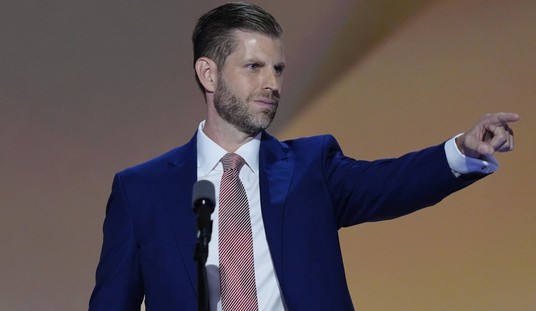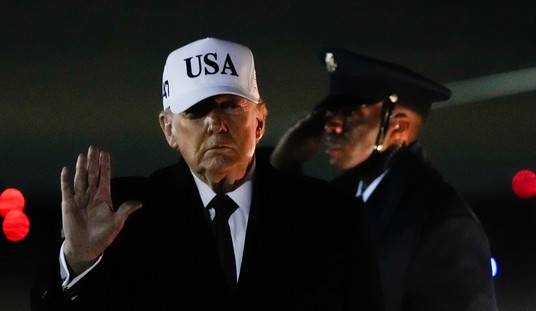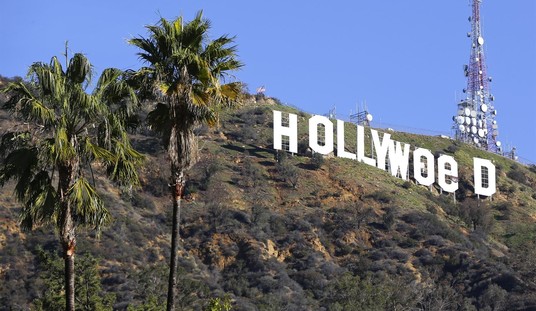In the movie business, the word for an on-screen romantic connection is chemistry. A version of chemistry can occur with a couple of pals (Butch & Sundance) or between a boy and his dog (Lassie and Joe) but the real stuff is what sparks between lovers.
Love scenes are complex undertakings. Actors can play ferocious anger and throw punches at one another and then go out for a beer. But the emotions set loose by on camera kissing and fondling are not so easily shaken off.
Katherine Hepburn and Spencer Tracy had chemistry. They weren’t exactly hot, more like a married couple, comfortable with one another. There was libido, but mostly there was ease. Their relationship was put to an on screen test many times and they always came out just fine. The Tracy-Hepburn off screen alliance is now well known, though it wasn’t at the time of their greatest popularity. We now think of their life together as mirroring what we saw in the movies.
Greta Garbo and John Gilbert lit up the screen and inflamed themselves in Flesh and the Devil (1926). The eroticism was indelible. Off screen, they were lovers and Gilbert, one of the great leading men of the silent era, was the most intense of Garbo’s heterosexual partners.
A more amusing kind of heat – alcohol-fuelled – came from William Powell and Myrna Loy in the Thin Man movies. They arranged their martinis in a row and worked their way down the line. They liked the booze but they also liked one another and you knew the drinking was only the prelude. Everyone wanted to be like them and everyone knew that was unlikely.
The chemistry between Jimmy Stewart and Margaret Sullavan was more like nuclear fission. He ached for her and you could see it in every shot. Their best movie was Ernst Lubitsch’s Shop Around the Corner (1940). They had a complicated off screen connection as well. She kept marrying other people (Henry Fonda, William Wyler, Leland Hayward) and, perhaps as a result, he remained “Hollywood’s most eligible bachelor” for years.
Casting actors and hoping for that elusive chemistry has always been difficult with far more fizzles than clicks. Star casting used to be controlled by the studios. They, after all, were writing the checks. Today, who gets the big roles is determined, in large part, by the stars themselves and their agents. If you want this star, you have to partner her or him with that star. It’s called “packaging” and it has damaged American movies. You can see the result again and again – two actors trying to whip up something like real feeling when it’s just not there.
With all this on my mind, and because a few reviews had remarked on how well Catherine Zeta-Jones and Aaron Eckhart played together, I went to see No Reservations, about a couple of chefs in an up-market New York restaurant.
The movie is a studio romantic comedy, which meant it might be amusing but more likely labored and predictable. I had enjoyed both actors (separately) before. If this attractive and skilled pair worked well together, it could be a treat.
I saw it in unexpected circumstances. I went to the morning show at the Grove, a huge mall in Los Angeles that has good theatres. It turned out to be “Mommy Movies” day. There were about 100 moms and their infants. They seemed relieved to have a morning out. The babies, some nursing, made baby noises. A changing table was involved. The lights were never quite dimmed.
I think it’s fair to say the moms liked the movie very much, certainly more than I did. Zeta-Jones plays a tough dame, a chef, who softens up when she’s forced to raise her little niece (Abigail Breslin). Eckhart is a sous-chef and more right for Zeta-Jones than she knows.
You can feel these two attractive, skilled actors trying to be in love. You even root for them to make a connection – but more as the two actors than as the characters. There were effective scenes, mostly to do with food preparation and the inner workings of restaurants, but often the stars seemed to be watching each other act, waiting politely for their turn.
No Reservations is not exactly a chick-flick. More like a young matron flick. Despite the infants, those moms were happy to watch Zeta-Jones triumph, and I think, to see a movie that involved quail with truffles rather than guns and explosions. As for that elusive chemistry, well, it’s a long way from Stewart and Sullavan or Garbo and Gilbert.
***
Last One In, Nicholas Kulish’s novel of a gossip reporter embedded with the marines in the early days of the Iraq invasion, is a first class debut.
Jimmy Stephens covers New York nightlife for The Daily Herald. He’s as trivial as the people he writes about. Some sloppy reporting gets him in serious trouble and by the time the dust settles, Jimmy is off to Kuwait assuming the identity of a real war reporter, also named James Stephens, who has been banged up in a New York traffic accident.
Jimmy is qualified to cover gossip, sort of, but not the marines in what will soon be wartime. It’s no place for someone who “has learned that very day the difference between a Sunni and a Shiite.”
Mr. Kulish’s daunting literary models are Scoop, Evelyn Waugh’s story of a gardening writer who covers a war, and Catch 22, Joseph Heller’s masterpiece of World War II. Sometimes the antecedents show – there’s at least one passage that might be an homage to Heller and amusing near-quotes from Scoop, but this is an original work, entertaining and ultimately moving.
If the idea comes from Waugh, the tone is from Heller. The great difference is that in Scoop, the war is a sort of potted civil war. It has an absurd quality and might go unnoticed if the garden writer – “Boot of the Beast” — wasn’t on the job. Heller’s war is of course, World War II.
Heller was a master of tone, and Kulish has learned from him. Last One In is satire, so there are marine types and journo types, but fully drawn characters emerge and Jimmy grows under the stresses of the impending war. It takes skill to balance all that with a real war approaching. Kulish is up to the task. The marines mock Jimmy at first, but as he comes into his own, they come to depend on him. It’s the making of him.
The Iraq war is one of the central events of our time. Kulish isn’t waving flags or pointing fingers, but he is recreating something of the circumstance of the early days of the war from the viewpoint of what were once called “war correspondents” and are now embedded reporters.
Kulish has his own field day abusing a few reporters and junior officers – that’s in the tradition of most war novels, comic or not. Good war fiction doesn’t usually appear till some time has passed, but the war on terrorism, in Iraq or elsewhere, won’t have a clear stop date. A shipboard treaty signing is unlikely. Good novelists won’t wait. Kulish was himself embedded with the marines for the Wall Street Journal in 2003. He must have been taking notes.
This is a funny and finally moving novel by a young writer of great promise.
David Freeman is the author of six books including, “%%AMAZON=0881848700 A Hollywood Education,%%” “%%AMAZON=0786705914 One of Us,%%” and, most recently, “%%AMAZON=0743249755 It’s All True.%%” He’s a screenwriter and playwright and has contributed to many print publications including The New York Times, The Wall Street Journal, The Los Angeles Times and The New Yorker.









Join the conversation as a VIP Member